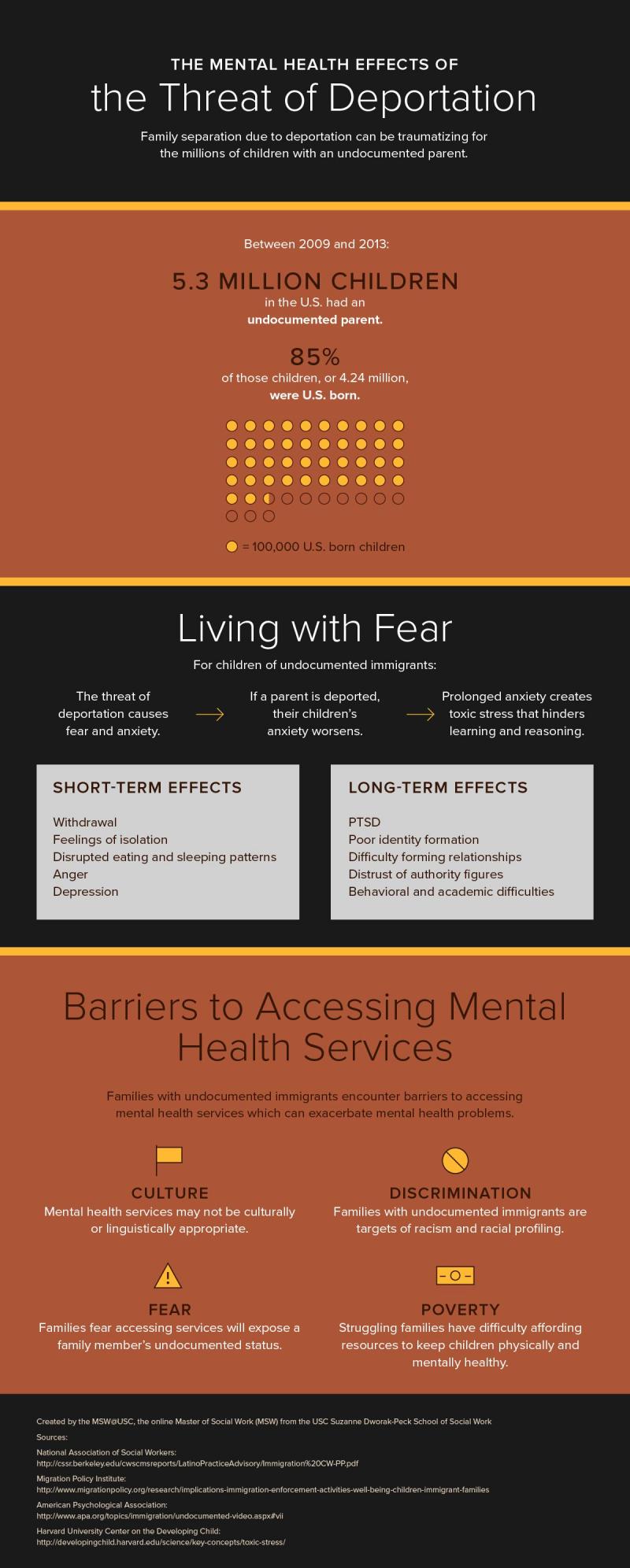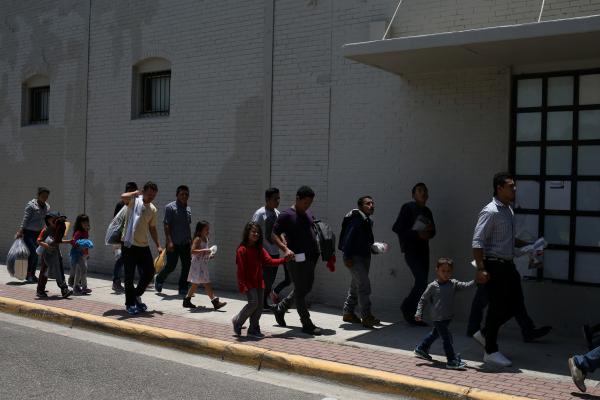The threat of detention and deportation is negatively affecting the mental health of undocumented immigrants and their families, particularly children, according to a report by USC Suzanne Dworak-Peck School of Social Work. Children who face family separation are especially vulnerable from the harmful impact of deterring crucial childhood development.
"It just creates an air of constant fear and being on edge. They are afraid to go outside, to look out of place in a certain neighborhood, and to go out and seek a job," Dr. Concepcion Barrio, associate professor at the USC Suzanne Dworak-Peck School of Social Work, said in the report. "Imagine your family ripped apart. That’s going to have reverberations across family members for years to come."
Between January and September of 2017, Immigration and Customs Enforcement (ICE) arrested more than 28,000 noncriminal immigration violators — a nearly threefold increase over the same period in 2016. Noncriminal immigration violators include undocumented immigrants with children. The Migration Policy Institute (MPI) estimates that from 2009-2013, more than 5 million children under 18 — 4.1 million of whom were U.S. citizens — lived with an undocumented parent.
trauma-of-deportation_deportation-infographic.jpg

According to the report:
Children who live in a heightened or prolonged state of stress, sometimes called toxic stress, in their formative years without necessary adult care and intervention can overload their stress response system, physically affecting brain functions such as learning and reasoning. ... Many children with a detained or deported parent experience depression, anger and social isolation that can manifest in erratic physical and mental health behaviors, such as refusal to eat, self-harm, poor sleep, and chronic head and stomach pain, according to MPI. A survey conducted by Human Impact Partners echoed these findings, reporting that youth with one or more undocumented parents often reported feeling withdrawn and angry — 29 percent and 46 percent, respectively — due to threats of detention or deportation.
"When children are traumatized, that trauma is a pivotal moment in their life that's going to define how they see themselves — how they identify as a person of color, as an American, as a Mexican American, as a young person, as a student," Dr. Barrio said.
Read the full report here.
Got something to say about what you're reading? We value your feedback!






